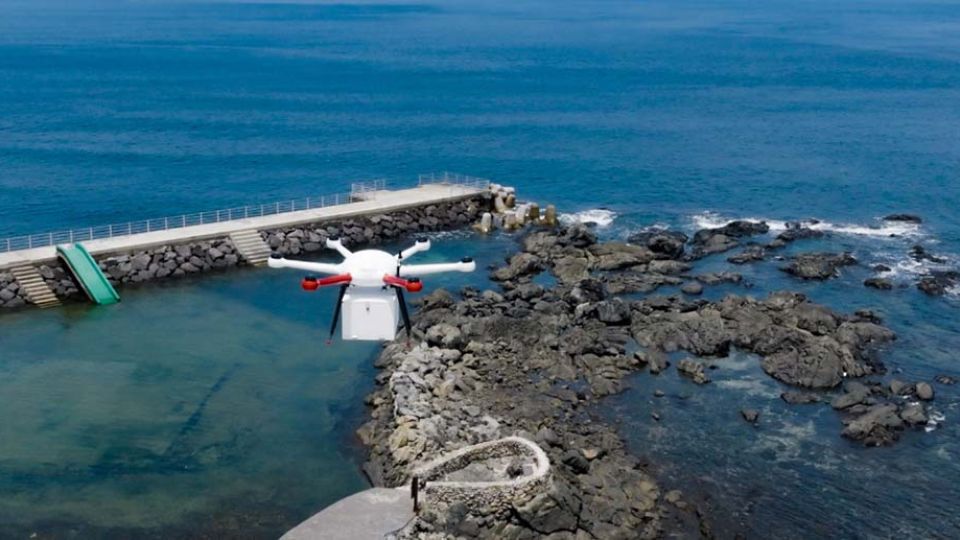August 6, 2024
SEOUL – With full-scale drone delivery services starting this month, residents on remote islands or inland locations can now receive food, daily necessities and first aid supplies with greater ease and convenience.
According to the Ministry of Land, Infrastructure and Transport, the K-drone delivery service commenced on the first day of August, covering 32 island districts, 17 regional park areas and one port across 14 municipalities. Although the service initially launched on Jeju Island in July, this month marks the nationwide rollout.
Currently, the drones will mostly deliver food and daily items weighing up to 3 kilograms per delivery. Delivery fees range from 3,000 won to 8,000 won ($2.20-$5.90), with national park deliveries costing 3,000 won for a 5-kilometer distance and island deliveries starting at 5,000 won for a 10-kilometer distance.
Additionally, residents in remote areas can take advantage of the service the other way around to send back local specialties to delivery hubs. Each hub is equipped with automated external defibrillators and first aid kits to ensure quick dispatch in case of medical emergencies.
The service also plans to increase weight limits and expand availability in the near future, as the Land Ministry is in discussions with other municipalities and corporations to broaden its coverage and increase the range of items available for delivery, ministry officials said.
Since March, when the Land Ministry selected 14 municipalities to be part of the K-drone delivery service, it has been collaborating with state-run agencies and academic research institutions to establish a robust safety management system for drone operations.
That includes a comprehensive management protocol focusing on flight routes, delivery sites, apps and service providers responsible for real-time monitoring of the drones.
The 14 municipal jurisdictions covered by the service include Pocheon, Yangju and Seongnam in Gyeonggi Province; Seosan and Gongju in South Chungcheong Province; Changwon and Tongyeong in South Gyeongsang Province; Gimcheon in North Gyeongsang Province; Namwon in North Jeolla Province; Yeosu in South Jeolla Province; as well as Incheon, Ulsan, Busan and Jeju Island.


